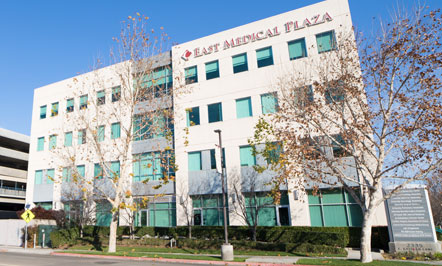Services we provide include:
General Cardiology Consultations
During your consultation, your cardiologist gathers all the information that is required for a diagnosis, evaluating your medical history, your family history, your lifestyle (eating habits, smoking, alcohol use, activity level, etc.) and discussing any cardiac issues you may be experiencing. Once your history is obtained, your cardiologist will perform a comprehensive physical examination, which typically includes ancillary tests such as chest x-rays, EKGs, laboratory tests, stress tests, nuclear stress tests, echocardiograms and/or CT scanning of the heart.
Interventional Cardiology
Interventional Cardiology is a nonsurgical procedure for treating cardiovascular disease. Interventional Cardiologists use catheters (thin flexible tubes), balloons, or stents to treat narrowed arteries in the heart or in peripheral vessels caused by atherosclerosis (hardening of the arteries).
Holter Monitoring
Holter Monitoring is a continuous EKG for 24 hours. Having a 24-hour EKG allows the cardiologist to correlate symptoms of dizziness, palpitations or blackouts and is much more likely to detect an abnormal heart rhythm than can EKG that lasts less than a minute.
Echocardiography
Echocardiography, also known as an Echo, is a sonogram of the heart. An Echocardiogram uses sound waves to create a picture of the heart, is more detailed than a standard x-ray image and does not expose you to radiation.
Carotid Ultrasound
Carotid Ultrasound uses high-frequency sound waves to create a picture of the insides of your carotid arteries. There is a carotid artery on either side of your neck that divides into internal and external carotid arteries. The internal carotid artery supplies oxygen-rich blood to your brain while the external carotid artery supplies oxygen-rich blood to your face, scalp, and neck.
Noninvasive Peripheral Arterial Evaluations
The ABI (Ankle Brachial Index) is a simple and accurate noninvasive test for the screening and diagnosis of PAD (Peripheral Arterial Disease), a common circulatory problem in which narrowed arteries reduce blood flow to your limbs. An ABI is performed by measuring blood pressure at a single level. Arterial pressures in the lower extremities at the ankle and toes are compared to the pressures measured in the arms. This ratio between the two is used as an indicator for PAD.
Stress Test
A Stress Test is used to determine the amount of stress your heart can handle before developing an abnormal rhythm or evidence of ischemia (insufficient blood flow to the heart muscle). We conduct the exercise stress test by using a treadmill (this is the most common form of stress test).
Stress Echocardiography
Stress Echocardiography uses ultrasound imaging to view how well your heart muscle pumps blood throughout your body. It is mainly used to detect a decrease in blood flow to the heart due to a narrowing of the coronary arteries.
Women's Heart Health
Women's heart disease has different symptoms than those a man might experience. They include, but are not limited to:
- Breaking out in a cold sweat, nausea or lightheadedness
- Uncomfortable pressure, squeezing, fullness or pain in the center of your chest that lasts more than a few minutes, or goes away and comes back
- Pain or discomfort in one or both arms, the back, neck, jaw or stomach
- Shortness of breath - with or without chest discomfort
- Recurring symptoms during exercise
We employ the only female cardiologists in the Central Valley who are accomplished in the field of women's cardiovascular disease.
Heart Failure
Heart Failure is the term that is used when your heart's pumping power is weaker than normal. Your blood moves through the heart and body at a slower rate, and pressure in the heart increases, resulting in the delivery of less oxygen and nutrients than the body needs. The chambers of the heart may respond by stretching to hold more blood to pump through the body or by becoming stiff and thickened. This helps to keep the blood moving, but the heart muscle walls may eventually weaken and become unable to pump blood efficiently. This can result in the kidneys responding by causing the body to retain fluid (water) and salt. If fluid builds up in the arms, feet, ankles, legs, lungs, or other organs, the body becomes congested, resulting in congestive heart failure.
We provide advanced care for patients with significant heart failure, including all modern medical therapies as well as implantable devices that provide short- or long-term support for the failing heart.
Transcatheter Aortic Valve Replacement (TAVR)
TAVR is a minimally invasive procedure undertake to replace the heart's aortic valve. TAVR is a procedure for people who have been diagnosed with severe aortic stenosis and are considered too sick or high risk for open heart surgery.
Working with our cardiac surgeons at Community Regional Medical Center, we implant prosthetic aortic valves in patients who are at high risk for standard aortic valve surgery. These new valves can be placed through the groin or through mini incisions in the chest and advanced to the heart.
Pacemaker
A Pacemaker is a small device that's placed in the chest or abdomen to help control abnormal heart rhythms. This device uses electrical pulses to prompt the heart to beat at a normal rate. Pacemakers are used to treat arrhythmias (abnormal rate or rhythm of the heartbeat).
Our physicians provide state of the art care in placement and follow up of pacemakers.



